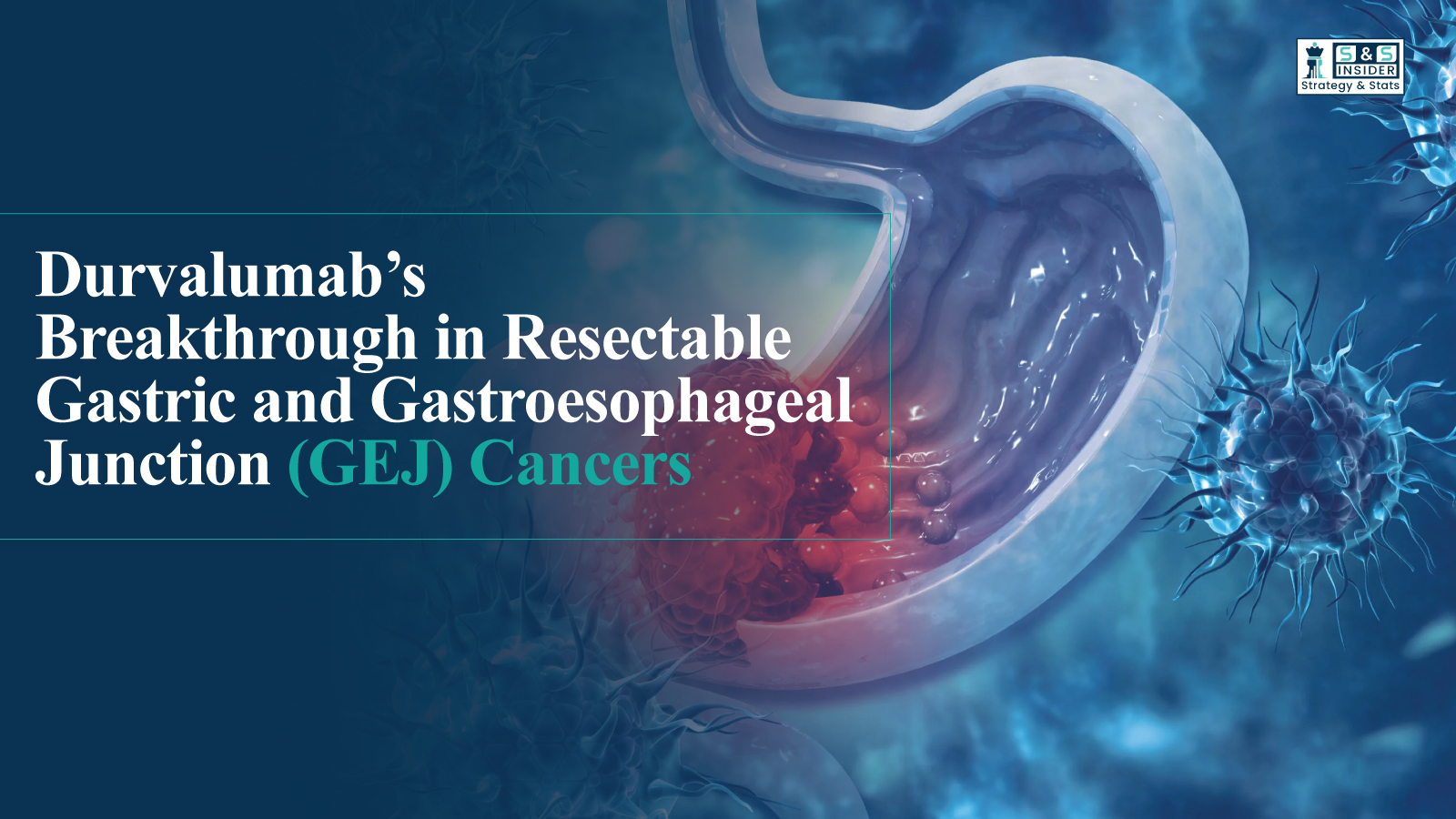
Durvalumab (Imfinzi) is becoming a game-changing treatment for people with resectable, early-stage, and locally progressed gastric cancer and gastroesophageal junction (G/GEJ) cancer. This is a giant step forward in a sector that has been restricted to surgery and chemotherapy for a long time. The U.S. Food and Drug Administration (FDA) has awarded Durvalumab a priority review and breakthrough treatment designation for this indication based on convincing findings from the crucial Phase 3 MATTERHORN study.
Filling a Critical Gap in Gastric Cancer Care:
Gastric and gastroesophageal junction (GEJ) tumors are often identified at stages II, III, or IVA, when surgical intervention with curative intent is the conventional approach. Recurrence, however, remains a significant concern, with around one in four patients developing recurrent illness within the first year despite receiving surgery and perioperative chemotherapy. This high incidence of relapse shows how important it is to identify new treatments that may lower the risk of recurrence and enhance event-free survival (EFS).
The MATTERHORN Trial: A Pioneering Study
The MATTERHORN trial included 948 patients who were randomly assigned to receive either Durvalumab with the conventional FLOT chemotherapy regimen (fluorouracil, leucovorin, oxaliplatin, and docetaxel) or a placebo plus FLOT. The treatment plan was for two cycles of neoadjuvant FLOT with Durvalumab or a placebo, surgery, two further rounds of adjuvant therapy, and up to ten cycles of monotherapy every four weeks.
Key Results:
These findings position Durvalumab in conjunction with FLOT as the first immunotherapy-based perioperative regimen to markedly enhance EFS in resectable Gastric and GEJ malignancies. These findings also confirm that Durvalumab in conjunction with FLOT as the first immunotherapy-based perioperative regimen to markedly enhance EFS in resectable Gastric and GEJ malignancies.
Letting the Immune System Go:
Durvalumab is a human monoclonal antibody that targets programmed death-ligand 1 (PD-L1), a protein that tumor and immune cells employ to hide from the immune system. Durvalumab restores T cell activity by inhibiting PD-L1. This makes it easier for the body to find and kill cancer cells.
In gastric and gastroesophageal junction tumors, PD-L1-mediated immune evasion is a key mechanism of disease advancement. Durvalumab helps get rid of leftover cancer after surgery when used alongside chemotherapy, which kills cancer cells and changes the tumor microenvironment. This lowers the likelihood of the cancer coming back. The perioperative phase is the best time for immunotherapy since the immune system is more receptive at this time.
The FDA's designations show that Durvalumab might change the way we treat resectable gastric and gastroesophageal junction (GEJ) tumors. If approved, Durvalumab with FLOT would be the first immunotherapy to be allowed to lower the risk of recurrence during the important perioperative period. This is a big change in how oncologists, surgeons, and pharmacists treat patients.
Conclusion:
Durvalumab in conjunction with FLOT chemotherapy is a potential novel perioperative intervention for patients with resectable gastric and gastroesophageal junction malignancies. The MATTERHORN trial's outstanding results, which showed a 29% decrease in cancer progression, recurrence, or mortality, suggest Durvalumab as a possible game-changer in this area.
If the government gives the go-ahead, this treatment plan might change the way doctors work and give patients with difficult diagnoses a new reason to hope. To better help patients along this new treatment route, everyone involved in the healthcare system should remain up to date on Durvalumab's approval timetable and new clinical data.
Source: pharmacytimes.